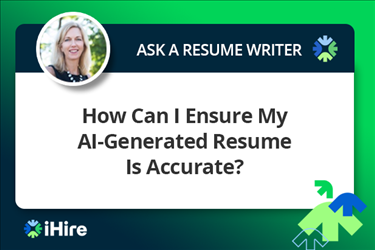- Job Seeker Resources
- |
- Last Updated: February 17, 2023

Big Corporation or Small Business? Where Do You Belong?
Use this guide to determine where your skills will be best situated
Finding a list of top skills for HR professionals is easy; just a few minutes with your favorite Internet search engine will turn up hundreds of examples. You may list these traits beside each other on your resume. However, the truth probably is that some of your qualities are naturally stronger than others.
Just like you, different organizations are more suited for particular uses of HR. So how do you find the optimal situation for your qualifications? Job fairs, interviews, and other investigations can reveal helpful information, but they are only useful for assessing individual enterprises. By first narrowing your search by basic company characteristics, you can save yourself an enormous amount of time and frustration. Get started with this guide to decide whether your proficiencies are more closely matched with HR roles in large or small businesses.
Strategic Planning
Large: “big picture” thinking
- Perceive how many individual processes and personnel contribute to huge interdisciplinary objectives
- Determine ways to maximize each employee’s effectiveness and improve overall productivity
- Align recruiting tactics/new hire training with large-scale business targets
Small: reallocating existing resources
- Can more easily shift the company’s organizational configuration
- Rearrange employees within existing structure to streamline processes and reach goals
Communication
Large: internal collaboration
- Cooperate with countless other HR professionals within the department
- Interface with several other people at once
- Maintain separate conversations with numerous coworkers for different projects
Small: effective material/content
- Proficiency with graphic design for written communications is a plus (avoid consultant fees)
- Speak to the full company workforce
- Should be comfortable interacting directly with CEOs and high-level executives
Knowledge of Business Fundamentals
Large: far-reaching attributes
- Understand how tasks of a single segment line up with broad company values/goals without interaction with highest-level management or organization’s full workforce
- Typically involves fewer/less intensive mathematical calculations
Small: bottom-line worth
- Usually entails calculating business impacts for nearly every HR initiative
- Compare budget and staff performance values to build programs/initiatives for maximum return
- Spreadsheet/minor accounting skills may be useful
Find your dream job!
Creativity
Large: resources without flexibility
- Access to established training programs and many recruiting options
- Workplace changes are difficult to initiate and may take years to fully take effect, if ever
Small: limited funds with more freedom
- Develop and introduce effective, low-cost training programs
- Current policies can be changed more easily (i.e. dress code, scorecards, etc.)
Negotiation/Conflict Management/Staff Relations
Large: political savvy
- Interact with many different types of personalities
- Respect existing structure/hierarchy while maintaining positive relationships with all levels
Small: small world
- Able to be appropriately assertive when dealing with issues involving high-level management/executives
- Carefully maintain confidentiality policies and workplace ethics— gossip travels quickly throughout the organization
Small companies are more adaptable and easily changed, but have limited funds for outside resources. If you choose to work in this environment, you should be flexible and able to perform a wide range of HR tasks, as you will be responsible for most, if not all, of these duties.
Larger businesses, by contrast, enjoy higher budgets for programs/initiatives but are more rigid in their policies and procedures. This may be your best fit if you are especially proficient in a few select areas, since the increased HR manpower in these organizations allows individuals to focus on their strengths.
Sign In or Register to access all articles and insider tips for help in your job search.
Search for Human Resources Jobs
RELATED JOBS
About us Our founder, Lena Bryant didn't set out to change fashion forever, but that's exactly...
Home Care Staffing CoordinatorHome Care Staffing Coordinator Wise Medical Staffing - Home Care Columbus, Ohio 1 day ago Quick...
Professional RecruiterProfessional Recruiter Elwood Staffing Columbus, IN, USA 12 hours ago Quick Job type Permanent...
Physician Compensation AnalystThe Physician Compensation Analyst provides compensation support and analysis for the Director...
Vice-President, Talent ManagementSumitomo Pharma Co., Ltd. is a global pharmaceutical company based in Japan with key operations...
RELATED RESOURCES
Find the Right Job Faster
- Get personalized job matches sent to your inbox every day
- Connect directly with employers before your competition
- Advance your career with expert advice on interviewing, salary negotiation, and more
We value your privacy




